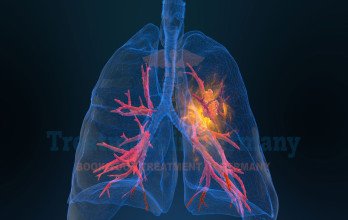
Find the most effective and advanced treatments for early-stage prostate cancer in Germany, including TACP, Dendritic Cell Therapy, Lutetium 177 PSMA, and Actinium 225 PSMA.

Learn about advanced treatments for breast cancer with liver and lung metastasis in Germany, including Dendritic Cell Therapy, TACE, and TACP, available for international patients with full coordination and visa support (if needed)

Experience advanced Triple-Negative Breast Cancer (TNBC) treatment in Germany with Dendritic Cell Therapy, TACE, and TACP for international patients.

Learn about Lutetium-177 PSMA Therapy in Germany, an advanced targeted treatment for prostate cancer performed under world-class safety and care standards.

Understand rising PSA levels after prostate cancer treatment, their causes, evaluation process, and advanced treatment options in Germany for patients worldwide.

Germany offers advanced breast cancer treatment options, including TACE, TACP, and Dendritic Cell Therapy, helping patients achieve better recovery outcomes.

Prostate cancer patients can access TACP, Dendritic Cell Therapy, Lutetium 177 PSMA and Actinium 225 PSMA in Germany, offering innovative treatment options for international patients.

Explore Stage 4 breast cancer treatment in Germany with dendritic cell therapy. TIG guides you to expert care and personalized immunotherapy options.

Soft tissue sarcoma patients can find advanced treatment in Germany with dendritic cell therapy. TIG helps connect them to expert and personalized care.

Dendritic cell therapy in Germany offers advanced care for stage 4 stomach cancer patients, helping strengthen the immune system to fight cancer naturally.

Stage 4 brain cancer patients can now access dendritic cell therapy in Germany, offering effective and innovative treatment options for international patients.

Stage IV Pancreatic cancer patients can access advanced treatment with dendritic cell therapy, offering new hope and personalized care options in Germany.

TACE Therapy in Germany targets stage 4 cancers with liver metastases, minimizing symptoms and enhancing patient outcomes. Expert specialists offer advanced care with comprehensive support for international patients.

TACP Therapy in Germany targets stage 4 cancers, minimizing symptoms and enhancing patient outcomes. Expert specialists offer advanced care with comprehensive support for international patients.

TPCE Therapy in Germany targets lung tumors, metastatic lung lesions, pulmonary nodules, and mediastinal tumors, minimizing symptoms and enhancing patient outcomes. Expert specialists offer advanced care with comprehensive support for international p...
.webp)
.webp)
 (1).webp)
 (1).webp)

.webp)
.webp)
 (1).webp)
 (1).webp)
